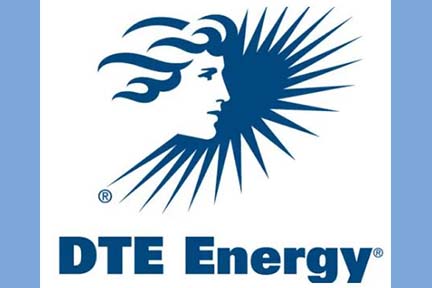LANSING – The Detroit Lions are returning to the playoffs as the NFC North Champions, and as fans are excited and eager to cheer on our team from the stands for the first-ever playoff game at Ford Field, Michigan Attorney General Dana Nessel encourages ticket-seekers to know what precautions to take to avoid scams in online sales. To encourage caution and safe practices, Nessel recommends those in the market for tickets to Sunday’s game be familiar with the risks associated with online ticket purchases and how to best protect themselves by reviewing the Department’s Online Ticket Purchasing consumer alert.
Retail sites like Ticketmaster have Lions’ Wild Card game tickets at Ford Field selling for thousands of dollars. However, Nessel wants Lions fans to remain vigilant when looking for tickets on the internet and to be mindful of scammers who seek to profit from the frenzy surrounding the home team.
“Online ticket sales come with a certain amount of risk. It’s easy for scammers to create a phony screenshot of a ticket that doesn’t exist or has previously been sold — possibly more than once,” Nessel said. “If you’re buying tickets to this weekend’s playoff game at Ford Field, make sure the tickets you pay for are authentic and they will actually get you into the game. Only then will you be able to keep your enthusiasm and your finances secure as you defend the den. Let’s go, Lions!”
Bad actors have several ways to scam ticket-buyers and ticket-sellers out of their money. Two of those ways involve payment or money app scams and fake check scams.
Payment app scams involve peer-to-peer (P2P) money apps like Apple Pay, Cash App, Circle Pay, Facebook Payments, Google Pay, PayPal, Square Cash, PopMoney, Zelle, and Venmo. P2P payment services are apps that require both parties to have an active user account and each account must be tied to a bank or credit card account. Once created, the pay app allows users to send money to other users by searching for their phone number, email address, or username. The money is instantly transferred electronically, and the transactions are usually free.
P2P scams can take many forms and require an extra degree of caution to be given to any transaction with someone you do not know. Be aware of the following scams when using a pay app:
- Scammers impersonating your bank may call to alert you about “suspicious activity” on your account and direct you to send money to yourself or “the bank’s address” to reverse a transaction or to verify the account is not frozen. Your bank will never tell you to send money to anyone, not even yourself.
- Fraudsters claim to represent a fraud department or merchant and ask you to confirm information such as your bank account username and password, credit card or debit card data, or Social Security numbers. Do not share this information — scammers want to create a P2P account with your information, steal your identity, and gain access to your accounts.
- Fraudsters send spoofed emails warning that an account is about to be suspended and that the account holder must enter their password on a spoofed webpage. Generally, payment app vendors will never ask you to enter your password unless you are on the login page.
If you try to sell legitimate tickets online, scammers may use the fake check scam to steal your money. A potential buyer makes an offer and sends a check — perhaps even a cashier’s check — for considerably more than the cost of the tickets and pretends it’s an error. They ask the seller to deposit the check and refund them the difference. But the check is a counterfeit, and the seller is scammed out of their money plus any other funds from the fake check, as well as bank fees. Banks do not assume those losses.
The Attorney General has some tips to protect yourself when buying tickets online.
- Know your vendor – Make sure you are buying from a reputable website, especially before providing any personal financial information. Anyone can set up a “spoof” website with a web address that is similar to the legitimate ticket seller’s address. Aside from potential licensing and trademark violations, “spoof” websites may offer consumers overpriced or counterfeit tickets and expose the consumer to identity theft.
- Do your research – If you are unfamiliar with a particular ticket vendor, you can call the Attorney General’s Consumer Protection Team at 877-765-8388 and ask if we have any complaints on file regarding that seller. Remember, however, that the absence of filed complaints does not guarantee a seller’s legitimacy; it simply means that we have not received any complaints concerning the vendor. As an additional resource, try researching the ticket seller on the Better Business Bureau’s national website.
- Use credit – If you purchase tickets online, especially via an online auction site, it is recommended that you complete your transaction using a credit card. Purchasing tickets with a credit card often provides you with protections that you would not otherwise have if you purchased the tickets using cash, check, or apps like Venmo and Cash App. Added protections with credit include the ability to dispute a charge if an event is canceled, or if you receive counterfeit tickets that a venue refuses to honor. Try to choose sellers with long histories of satisfied customers, and make sure the online bid amount is listed in American dollars.
- Shop securely – If a website begins with “https,” the “s” indicates that the website is “secure.” Typically, the “s” will not appear in the web address until you access the order page of the site where you are asked to enter your personal information. Another indicator of a secure website is a graphic of a closed lock located at the bottom of your screen. Secure websites take precautions to ensure that others cannot see and copy the personal information you provide.
If you have a complaint regarding tickets you purchased online, you can contact the Attorney General’s Consumer Protection Team at:
|
|







